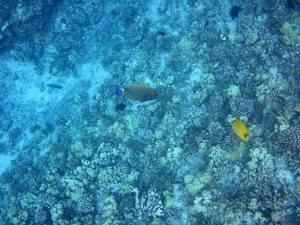Coastal Study Reveals What Beachgoers Value Most
What do beach goers in Hawaiʻi care most about at their favorite shoreline? According to a new study that surveyed Oʻahu residents, people place a higher value on water clarity and bacterial quality.
The study, titled “Beach Recreationalists’ Willingness to Pay and Economic Implications of Coaster Water Quality Problems in Hawaiʻi,” was conducted by UH ecological economist Kirsten L.L. Oleson and former MS student Marcus Peng. Their work was published in the journal Ecological Economics.
Oleson and Peng surveyed 263 Oʻahu beachgoers to find out their willingness to pay (WTP) for environmental improvements at different quality levels.
The authors concluded that improvements to coastal conditions could greatly benefit beach goers on Oʻahu, and valued the potential gains in the range of hundreds of millions of dollars. Their findings could justify an increase in spending on coastal environment management and restoration.
“The economic value of water quality isn’t yet well understood in Hawai‘i,” said study lead author Marcus Peng, a former Master of Science student in the Department of Natural Resources and Environmental Management in the College of Tropical Agriculture and Human Resources and current PhD student of Economics at UH Mānoa. “Quantifying the economic value of coastal water quality can help to inform policy decisions that impact the coast and help justify expenditures in water-quality improvements.”
Coastal waters provide more than just recreational value, according to the authors of the study. They argue that water-quality degradation threatens not only the wellbeing of both the environment and humans, but presents a serious risk to Hawaiʻi’s bread and butter tourism industry.
The authors of the study suggest that further research is needed to fully determine the economic costs of human impacts on coastal zones in order to determine appropriate management strategies.
Oleson emphasized, “Reducing human impact on our environment is an investment that benefits society and supports and sustains our quality of life.”














